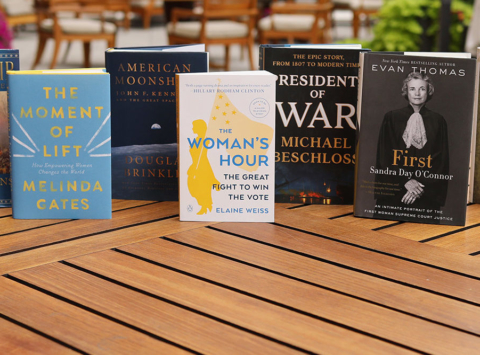This Be Fearless Spotlight is a part of a special blog series by the Case Foundation featuring Be Fearless stories from the field. Follow along with us as we meet people and learn about organizations that are taking risks, being bold and failing forward in their efforts to create transformative change in the social sector. This Spotlight is authored by Julio Marcial, Program Director at The California Wellness Foundation.
Since its inception, The California Wellness Foundation has focused on improving the health of Californians by looking at a number of factors that affect health. Our funding is grounded in the belief that where people live and work, their race and ethnicity and their income impact their health and wellness. We aim to “level the playing field” by using an equity framework that supports organizations that are removing barriers so that everyone, especially people of color, has access to good-paying jobs, safe neighborhoods and quality health care services.
One of our priorities is to reduce violence in California’s communities. Over time, it has become increasingly clear that one major barrier stands in the way—our criminal justice system. Since 1980, California has built 22 prisons and just one university. As a state and as a country, we have developed a devastating dependence on incarceration despite its profound limitations in meeting the needs of our communities. Our near exclusive reliance on prisons to address violence has failed so many of our residents and their families—especially boys and men of color, who are among those most likely to be harmed instead of helped. The California Wellness Foundation believes something else is possible.
That’s why, in 2012, California Wellness made a bold decision and joined a diverse group of foundations to form Funders for Safety and Justice in California, which invests in people and organizations that are improving the criminal justice system and preventing violence in the state. Launched by the Rosenberg Foundation, the network includes the Ford Foundation, the Fund for Nonviolence, Open Society Foundations, the Public Welfare Foundation, The California Endowment and the Women’s Foundation of California.
Together, we are supporting a multiyear campaign, Californians for Safety and Justice, to reduce the number of people incarcerated in state prison and local jails, and to advocate for a resource shift away from incarceration and toward treatment, violence prevention and much-needed services that boost the health of our communities. Our funders’ group knows that we must reach beyond our comfort zone; our philosophy is that local communities often know the best approaches to creating strong, vibrant neighborhoods. We also know that tackling criminal justice reform in California requires a long-term investment that involves more than just one foundation and supports more than one solution.
The campaign works alongside Californians from all walks of life—from medical associations to business and faith leaders—and brings new voices into the work of reimagining public safety in California. Innovation happens at intersections, and our grantmaking is coordinated to support a robust movement among diverse organizations focused on criminal justice reform, including: faith-based groups like PICO California; grassroots organizing groups like the Community Coalition and the Youth Justice Coalition; policy advocates like the Ella Baker Center for Human Rights and the National Center for Youth Law; and health advocacy nonprofits. Together, this movement has achieved tremendous success.
One major victory has been the passage of Proposition 47, a historic state-level criminal justice reform measure that passed with 60 percent of the vote in 2014. Prop. 47 marked the first time voters anywhere in the U.S. have changed the penal code to reduce penalties for the purpose of reducing incarceration as a violence prevention strategy. Thousands of people in California jails and prisons can request new sentences, and approximately 50,000 people annually will avoid incarceration going forward.
One of those people who benefited from Prop. 47 is Susan Burton, a CNN Hero and the founder and director of A New Way of Life Reentry Project. After her son was killed by a car, Susan medicated her grief with drugs. Instead of receiving the support and services she needed, she cycled in an out of the criminal justice system for nearly 15 years. Today, Susan’s small home has grown to six transitional houses in South Los Angeles and Compton that have served more than 600 formerly incarcerated women. Operating on a $1 million budget, its 10 employees manage services that include lodging, clothing, food, legal aid and job training.
In addition, more than a million people are able to clear past felonies that have stood as barriers to jobs, education, housing and more. Prop. 47 also calls for savings to be reallocated to a new state grant program to fund local drug and mental health treatment, services for trauma victims and violence prevention programs for youth whose circumstances make them vulnerable. When more of California’s citizens are out of jail and getting the help they need to fully participate in their communities, our neighborhoods are safer and residents are physically and mentally healthier.
Today, organizations that are supported by Funders for Safety and Justice are making sure as many Californians as possible benefit from the new law and the state grant program, which is estimated to total more than $40 million.
We are proud of the campaign’s effect upon the statewide dialogue to transform a broken criminal justice system. Our coalition made a big bet, and we are making history. Some credit the campaign with being a catalyst for changing the public discussion on the issue. Many no longer view solutions to criminal justice and violence prevention strictly through a law enforcement prism. Voices throughout the state, representing many diverse professions, communities and ideologies, now recognize the public health approach and support prevention rather than relying solely upon incarceration as the only tool to reduce violence and create healthier communities.
Feeling inspired? If you’re ready to begin your own Be Fearless journey start by downloading our free Be Fearless Action Guide and Case Studies.





